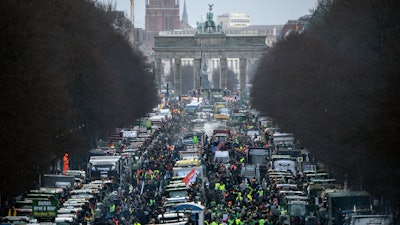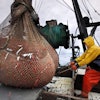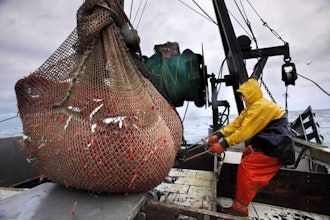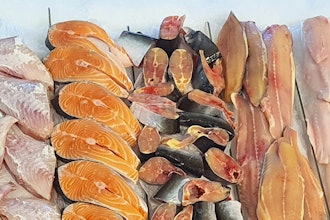
BERLIN (AP) — Farmers clogged Berlin streets with their tractors on Monday, honking their horns in protest at a plan to scrap tax breaks on the diesel they use, the climax of a week of protests that has tapped into wider discontent with Germany's government.
Columns of tractors rolled into the capital ahead of the demonstration at the landmark Brandenburg Gate. Over the past week, farmers have blocked highway entrances and slowed traffic across Germany with their protests, intent on pushing Chancellor Olaf Scholz's government to abandon the planned cuts entirely.
They're not satisfied with concessions the government has already made. On Jan. 4, it watered down its original plan, saying that a car tax exemption for farming vehicles would be retained and the cuts in the diesel tax breaks would be staggered over three years.
"Take back the proposed tax increases, then we'll pull back," said the chairman of the German Farmers' Association, Joachim Rukwied. He said the demonstration sent a message to politicians that "too much is too much."
"We are an important part of Germany — please don't forget that," he said.
Finance Minister Christian Lindner was greeted with boos, whistles and chants of "Get lost" as he defended the government's revised plan. He conceded that the original proposal "was too much and it was too fast" and said the protests were legitimate and peaceful.
"There should be no special sacrifice by farming, just a fair contribution" to getting Germany's finances in order, he added. He told Rukwied that "your protest was already successful" and said the delay in cutting the tax breaks buys time to find ways to reduce bureaucracy for farmers and improve their productivity.
The plan to reduce the tax breaks resulted from the need to fill a large hole in the 2024 budget. The farmers' protests come at a time of deep general discontent with Scholz's center-left government, which has become notorious for frequent public squabbles and lengthy wrangling over sometimes poorly communicated decisions.
In a video message Saturday, Scholz acknowledged concerns that go well beyond farming subsidies, saying that crises, conflicts and worries about the future are unsettling people. Polls have shown a comfortable majority sympathizing with the farmers' protest, and Monday's demonstration was joined by Germany's road transport association.
Farmers say their frustration runs deeper than the current plans.
"We are not standing here today just because of the agricultural diesel cuts," Theresa Schmidt, head of an association that represents young farmers, told the rally. "In recent years and decades, we have been beaten endlessly — more and more requirements, tighter rules and restrictions."
"We have more and more requirements and are being overloaded with food from abroad that is produced below our standards," said Alfred Winkler, a farmer from the Bavarian region of Franconia.
Lindner said "agriculture isn't a sector like every other" and there are good reasons for state support, noting that it gets 9 billion euros (nearly $9.9 billion) from the government and the European Union every year.
Farmers' representatives met later Monday with the leaders of all three governing parties' parliamentary groups, who held out the prospect of action on the wider challenges farmers face. But they didn't resolve the disagreement over diesel tax breaks.






















